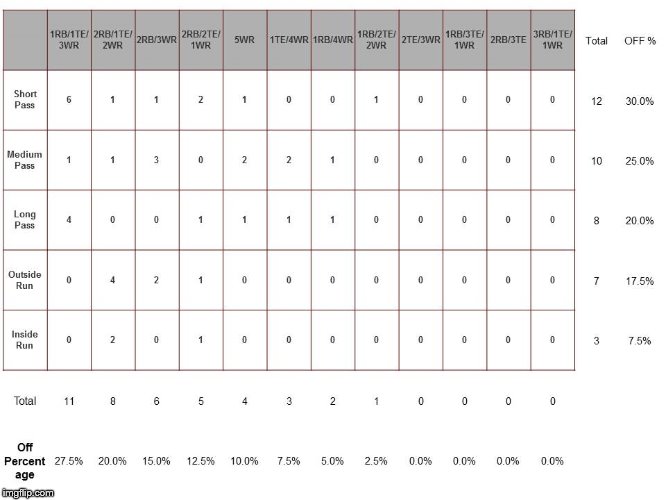I'm by no means an expert when using rules, but I'll chime in.
setherick had a great write up on basic defensive game planning (
https://mfn73.myfootballnow.com/community/3/3581?page=1#23686) that I have taken to heart and adapted to my teams. This is what he said about rules:
Proper Use of Rules
I already discussed the two rules that you need as a minimum. But if you are scouting your opponent, you will want to consider using other rules based on what your opponent does. These TEMP rules, as I label them in my ruleset, allow you to key on specific formations that your opponent uses.
Here are some protips for these TEMP rules and for offensive game planning for that matter.
1) If your opponent only runs or only passes out of a specific set, key the **** out of it. – Your opponent loves the 122 medium passing play where the WRs run a streak and the TE runs a post? That's a good time to go to a Nickle, Blitz 1 Pass Key rule against the 122.
2) If your opponent runs the 113 HB Counter or runs a lot period out of the 113 or 203 sets, create a rule that goes Normal Defensive Back field – You are probably signing LBs that are fast, strong, and good tacklers, right? Why do you want them off the field when the other team is probably going to run the ball. This rule can really save you through 3Qs. But you might want to not use it in the 4Q if you have a lead and your opponent is likely to pass. In that case, you might need two rules depending on how much you trust your LBs not to get burned by the slot WR.
I usually have 1 offensive rule: a 2-minute drill, and 2 defensive rules for each of my teams: 1 for pass formations and 1 for run formations.
For the 005, 014 and 104 formations there are no run plays so you can conveniently set up a rule to key only pass and use your best pass defenses against those. Other formations are not so straight forward.
In the example you put above this team seems to run mostly passes from the 113 set. You could set up a rule for that particular team that says whenever they use that formation you play pass. I would say probably 50% Neutral, 50% Pass and 0% Run. They also seem to run most often when in the 212 formation so you could do the same thing as well, but slanted toward the run.
Making rules like this is only for that team so you would want to deactivate them after that game and create new ones for your new opponent. I usually name them "TEMP - [formation][team name]." It helps me know which ones are temporary and which I always have turned on.
I've had to experiment a lot with rules and find things that work.
Last edited at 10/26/2017 3:29 pm

